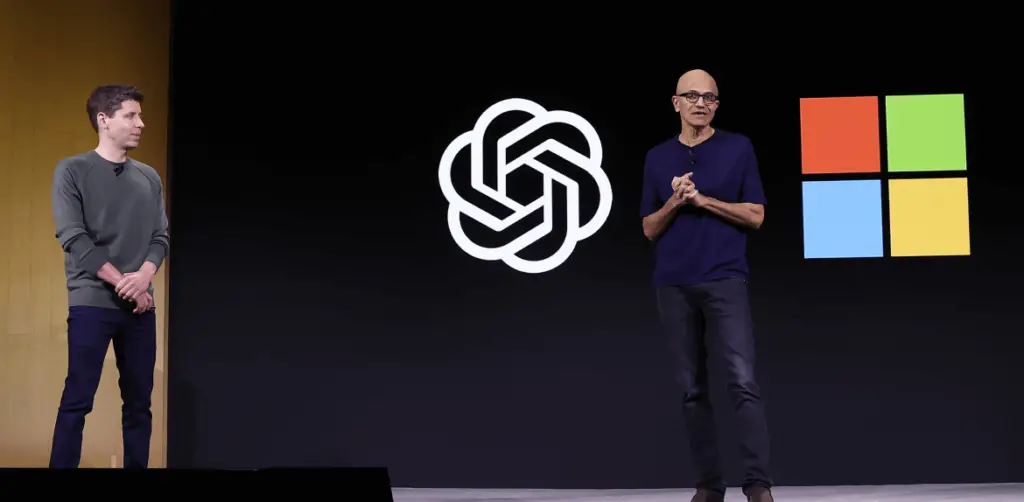The lack of acquisition activity by tech giants these days is mostly caused by an unfavourable regulatory environment. However, they’re coming up with other ideas for how to blow billions of dollars on the next big thing.
This week, Amazon revealed the details of its largest venture deal to date: a $2.75 billion investment in the artificial intelligence startup Anthropic. This development serves as yet another example of how the biggest tech companies are opening their wallets in response to the AI gold rush.
Anthropic’s Claude AI model is a rival to Google’s Gemini and Microsoft-backed OpenAI’s GPT. In order to stay ahead of the curve in a market that is expected to generate over $1 billion in sales in the next ten years, Apple, Meta, and other companies are rushing to incorporate generative AI into their extensive range of features and products.
According to PitchBook, investors invested a total of $29.1 billion in almost 700 generative AI deals in 2023, a 260% increase in value from the previous year.
It was strategically significant because a large portion of that funding came from tech companies instead of venture capitalists or other organisations. One of the things that drives their decisions, according to Fred Havemeyer, head of U.S. software research and AI at Macquarie, is a fear of missing out.
Havemeyer stated, “They don’t want to miss out on being a part of the AI ecosystem.” “I firmly believe that FOMO exists in this market.”
The large outlay is required because AI models are notoriously costly to develop and train, requiring thousands of specialized chips, the majority of which have come from Nvidia up to this point. Numerous companies, including Meta, which is developing its own model named Llama and has stated that it is spending billions on Nvidia’s graphics processing units, have helped the chipmaker Nvidia see its revenue increase by more than 250% year over year.
There are only so many businesses that can afford to participate in the market, whether they choose to build or invest. In addition to creating the chips, Nvidia has become one of Silicon Valley’s leading investors, investing in several start-up AI businesses, in part to ensure the widespread adoption of its technology. Similarly, Microsoft, Google, and Amazon occasionally provide cloud credits in exchange for investments.
Both Amazon and Anthropic stated in their Wednesday announcement that they will collaborate closely in a number of ways. Anthropic intends to leverage Amazon Web Services and Amazon chips for its computational requirements. Amazon will distribute Anthropic’s models to AWS users.
Anthropic unveiled Claude 3, their most potent model, earlier this month. According to the company, Claude 3 allows users to upload documents, images, charts, and other unstructured data for analysis and solutions.
Microsoft invested $1 billion in OpenAI in 2019, entering the generative AI investment space earlier. Since then, its investment has increased to approximately $13 billion. Microsoft offers open-source models on its Azure cloud and makes extensive use of OpenAI’s model.
Alphabet serves as both an investor and a builder. The business has redirected a large portion of its product development efforts towards generative AI and its recently renamed Gemini model, which includes new features for documents, maps, search, and other areas. Google announced last year that it would invest $2 billion in Anthropic, having previously acknowledged that it had acquired a 10% stake in the startup in addition to a significant cloud contract between the two businesses.
According to Havemeyer, tech companies are investing in AI startups because these ventures fit with their product roadmaps, so they aren’t just cashing in on the “hype cycle.”
He declared, “I don’t think it’s frivolous.”
According to Havemeyer, partnerships with large cloud providers help startups attract clients in addition to providing much-needed funding.
“Come to us, work on our platform, have native access to the latest and greatest AI models, and also use our infrastructure,” Havemeyer stated about the cloud companies’ approach. “It’s also a component of a much bigger ecological drama.”
“Those hyperscalers with significant scale, infrastructure, and very deep pockets are forming a lot of alliances,” he continued.

